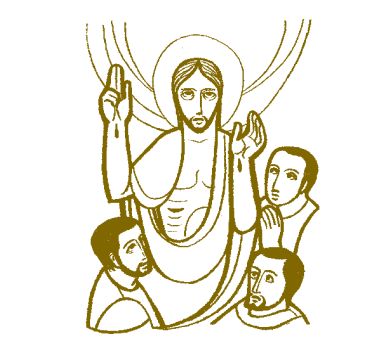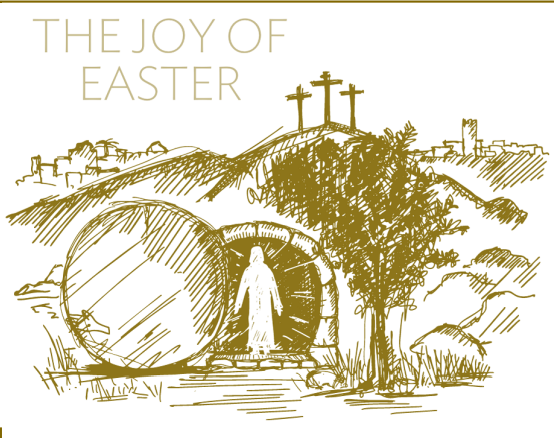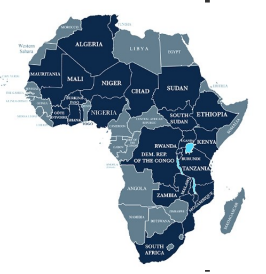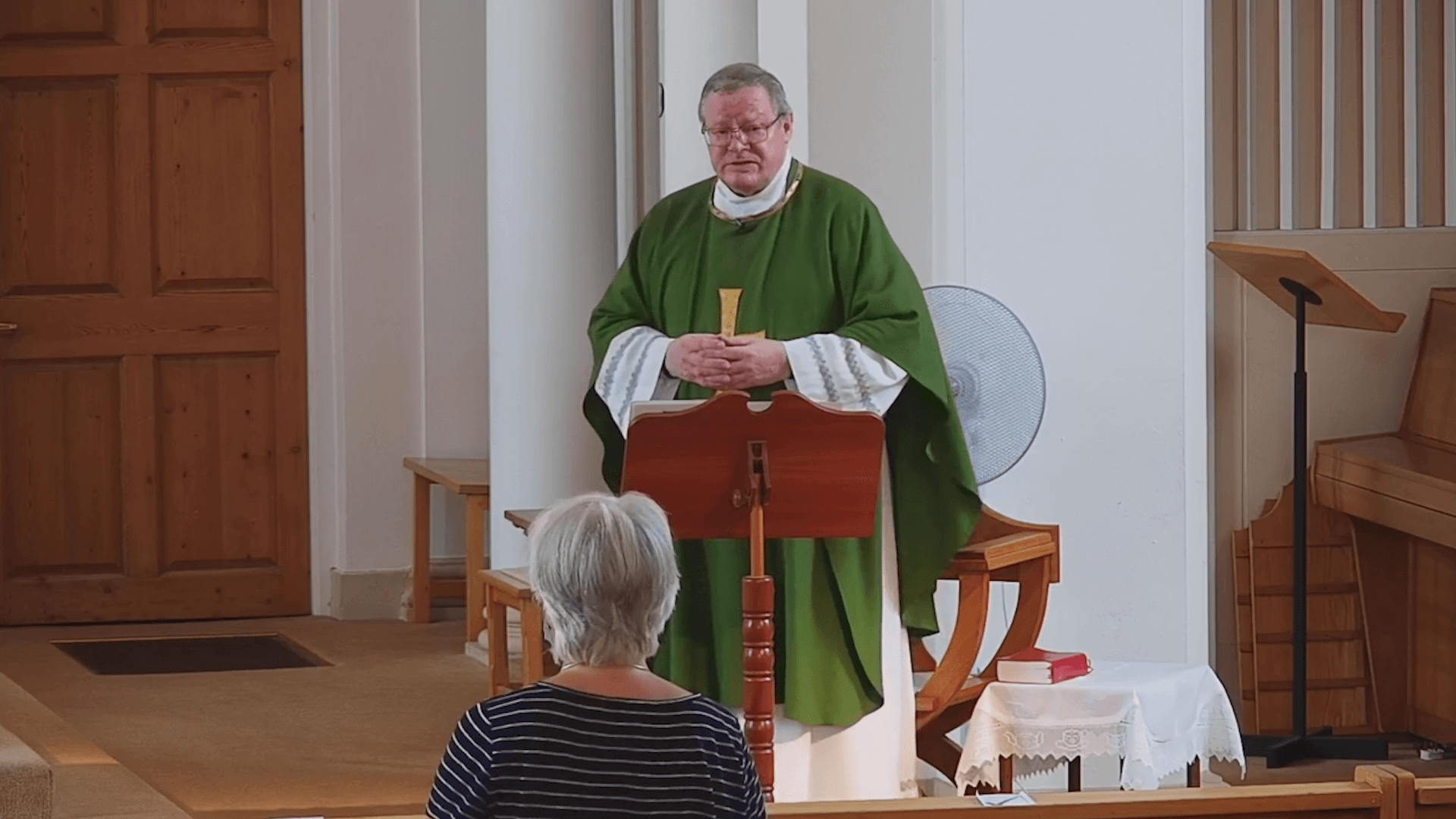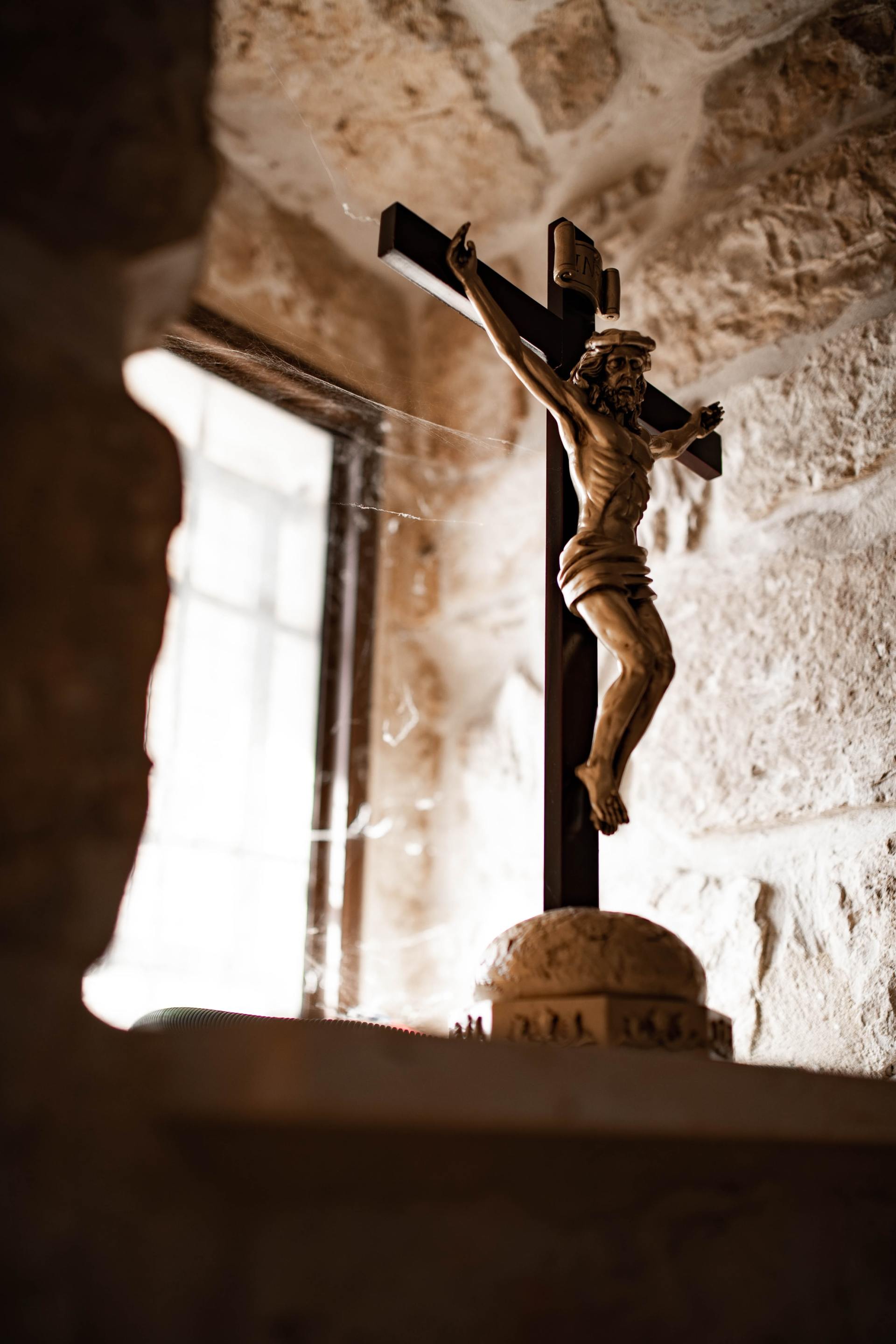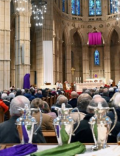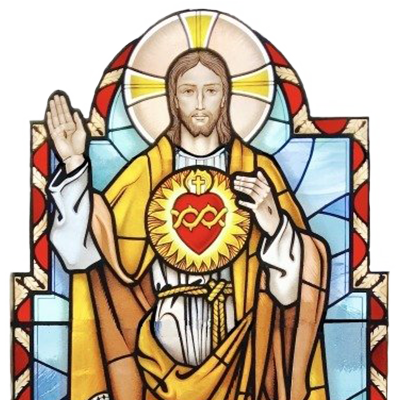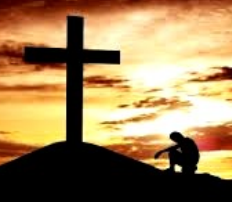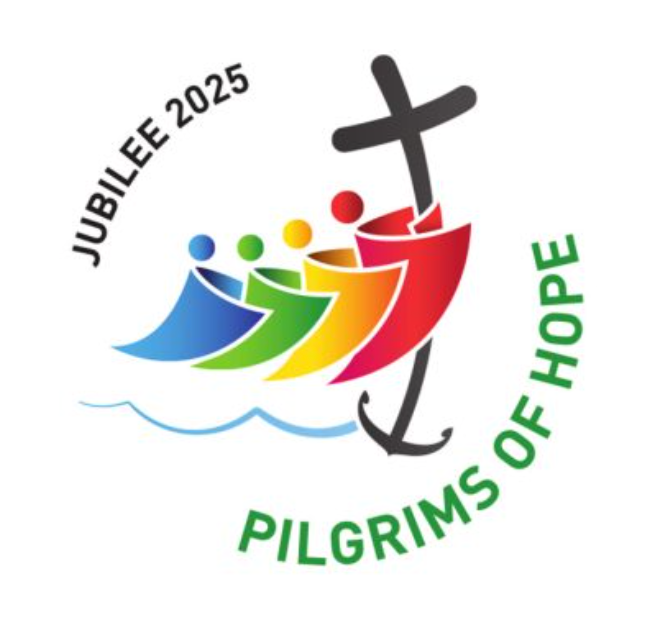Sunday 12th December 2021
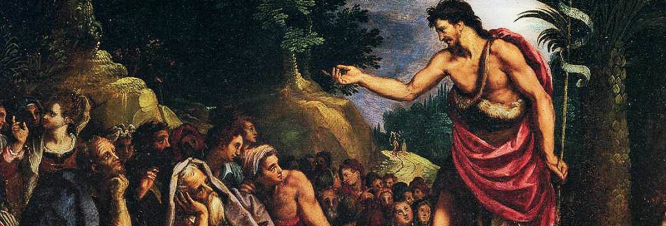
In the gospel a shout is heard: urgent, loud, seeming at first to be discordant with the joy of the other readings. John the Baptist is with us again, a lean and eager man, his life pared down to essentials by his wilderness experience, his tongue sharpened by silence. Listening to his prophetic and passionate words, the crowds wonder if he might be the long-awaited Messiah. They come to John with their practical questions: “What is it that we should do?” they ask, and John has practical answers for them. He does not suggest that they dissociate themselves from their everyday lives, but rather that they be converted to just living and sharing in their ordinary relationships. John does not call them into the desert but urges them to be sensitive to the wilderness of poverty around them and among them, responding by clothing the needy with their extra cloak and sharing food with the hungry.
There is nothing of elitism in the Baptist’s ministry. In the crowds are two of the most despised groups in Palestine society: tax collectors and soldiers, both of whom worked for the Roman occupying force. The tax collectors are not told to resign, but to stop exploiting people; the soldiers are not commanded to leave the force, but to avoid violence, intimidation, and grumbling about their pay - they at least get a wage. One way the imperial system of Rome or any global power then or now can be changed is through a change of heart on the part of those within it or concerned about it, or through informed, responsible voting for or against it. This is gospel ‘people power.
John comes to us on this third week of Advent as the awakener of our sense of social justice, the one who points to the clutter of selfish concerns and materialism that can suffocate our practical love for our brothers and sisters in the stale air of indifference or greed. We are called to be concerned not only with the material clothing of the naked, but also with covering with love the naked vulnerability of someone in need. Feeding the hungry is not only about the soup kitchen, but also about nourishing one another with our compassionate concern. How can we, individually, or in our families, parish, or other communities, respond today to John the Baptist? How can we plan ways in which we can give Christmas back to the ones to whom it really belongs: the homeless, the refugees, the elderly, the sick, the hopeless young people, those with disabilities, all of whom are so often discarded like our cast-off Christmas wrappings?
It is not easy to hear prophetic voices over the outer noise of the shopping centres or the inner noise of our rehearsals of what still needs to be done by Christmas Eve. Yet these are the days when we are encouraged by Isaiah, whose song is today’s psalm, to take at least some time to be water-drawers as well as shoppers. With a few moments of prayer or sacred reading, we can reach our inner depths where the well of salvation flows and drink joyfully and confidently from its sustenance. Or we can draw water so that we may quench the thirst of a brother or sister for companionship, for compassion, for something to hope for - and discover that, in our so doing, God renews the springs of his grace within us.
